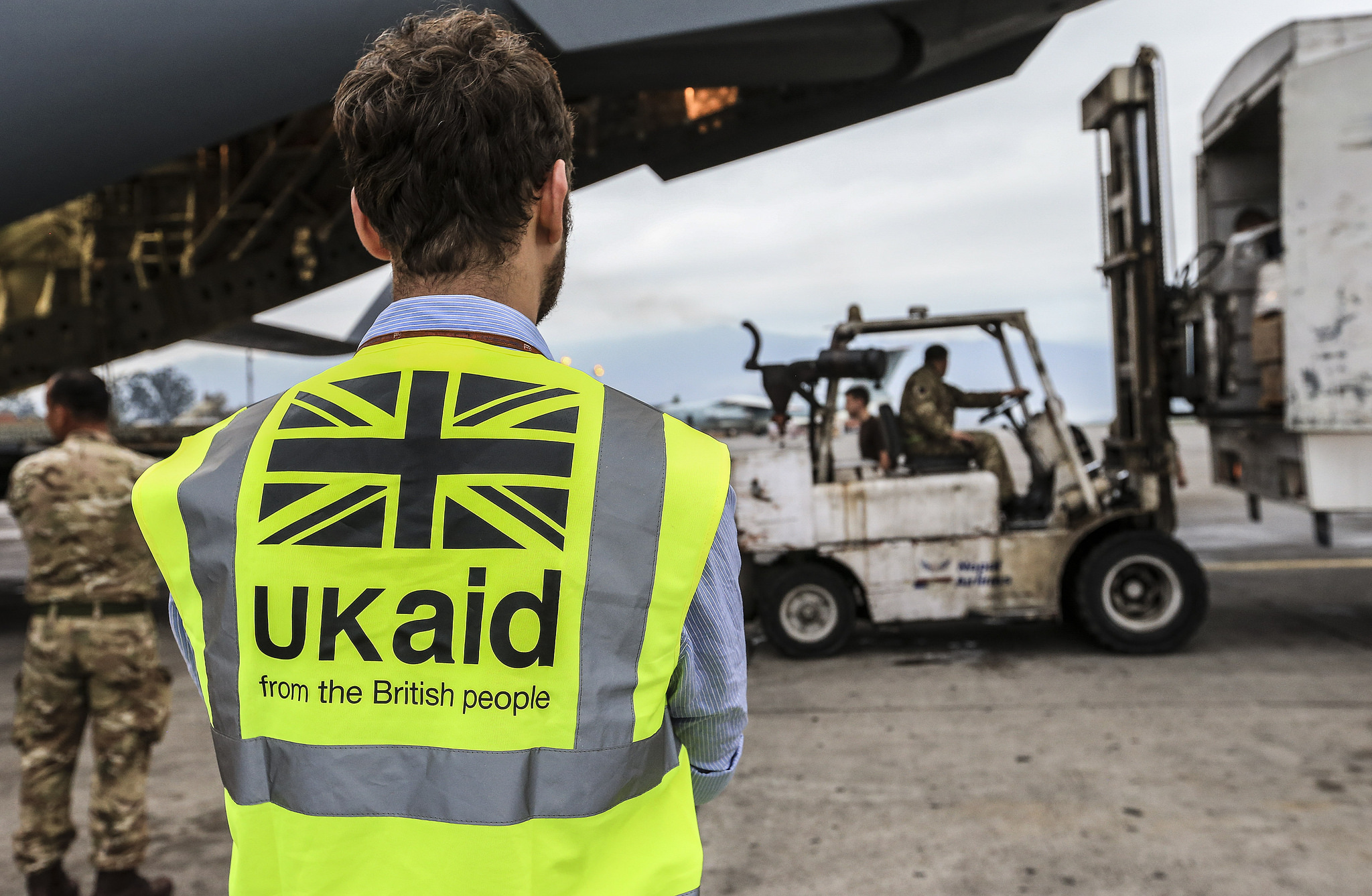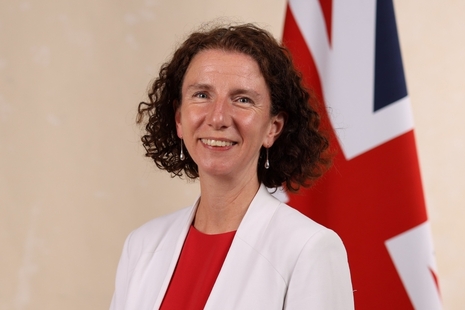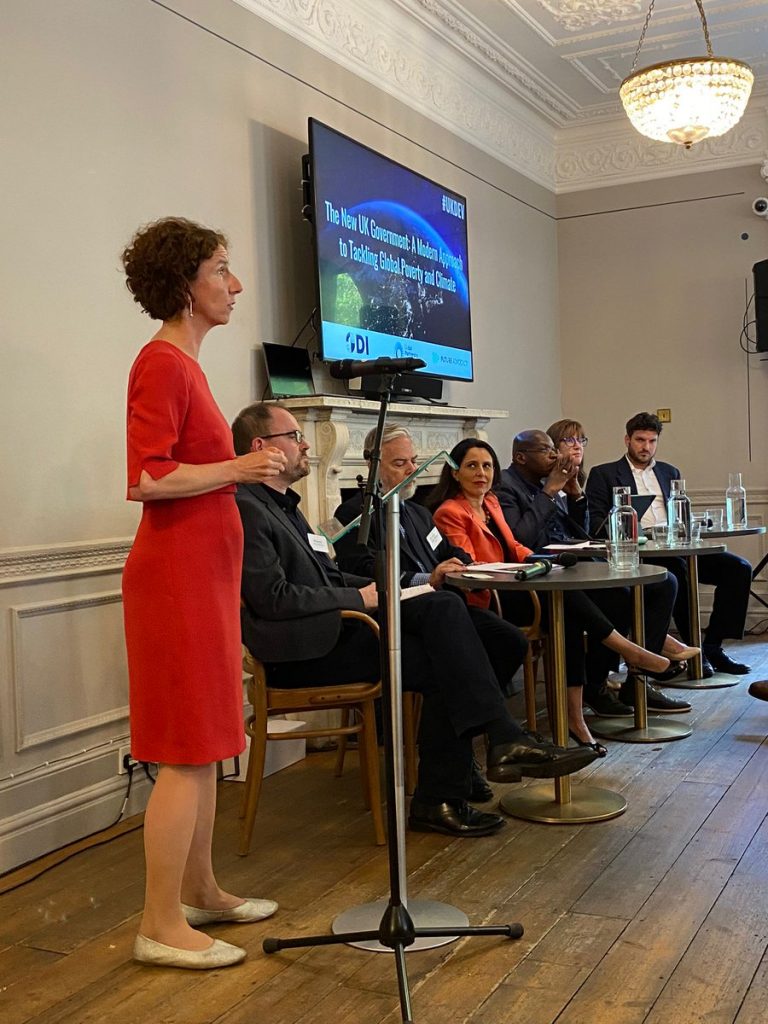

Interesting session the other night with the incoming UK Minister for International Development, Anneliese Dodds, and a panel of worthies from across the aid and dev sector, who launched into extended elevator pitches to the new minister (it reminded me a bit of the SDG Christmas Tree, in which every lobbyist insisted on their issue being included during the design phase).
First the vibe: a tangible sense of excitement that the sxxtshow of the last couple of years (the collapse in the budget, chaos at the FCDO, the constant predation of the aid budget by other departments) may be over, part of a return to grown-up, evidence based and progressive government (we can always dream). The Minister won’t get many more sympathetic audiences.
Dodds explained that she has a seat at the cabinet (good), but that she has two portfolios – development, but also Minister for Women and Equalities (which she has shadowed for the last 3 years), based at the Department for Education. Not exactly a ringing endorsement for the priority of development on the new government’s agenda. We will have to see if the lure of a big dev budget compared to next to nothing at the DfE means she prioritises the development half of her job, or whether the periodic kerfuffles over trans rights etc achieve the exact opposite.
The mood music was interesting, she stressed humility, partnership, and the panel added a focus on participation and rights. The most pointed panelist was ODI’s boss, Sara Pantuliano, who got stuck in on Gaza, double standards with Ukraine, arms sales, and the challenge for the UK if it is to try and champion international law.
I was sat behind Anneliese when she returned to the audience for the panel, so whiled away the time trying to spot when she was writing stuff down (rather than staring into space – she must be exhausted, I doubt many people in the new government have had a proper sleep for the last couple of weeks). I’ve always thought this is a pretty good indication of when a point lands with a decision maker – they’re bombarded with pitches 18 hours a day, so they tend to zone out for much of the time. One of the highlights of my largely ineffective advocacy career was seeing Gordon Brown (then UK Finance Minister) start scribbling while I was pitching a critique of the UK’s position on the WTO. (In case you’re wondering if he was just doing his shopping list, I overheard him saying to his adviser ‘why are we supporting this?’ shortly afterwards.)

Some speakers, including Sara, earned a scribble, others got the blank stare. Dodds took notes on the international law point, on Chukwu-Emeka Chikezie’s excellent comments about the current ‘Gen Z’ uprisings in Kenya and the failure to include youth in politics and Claire Melamed’s call for UK to lead donors on avoiding bonkers duplication on data systems (different donors often fund parallel systems within the same ministries, apparently).
Conversely, she was not taken by Claire’s carefully polished ‘killer facts’, like $1 of investment in data capacity yields $32 in economic benefit, or (unsurprisingly) Sara’s points on double standards.
There were a few elephants in the room, in addition to the split portfolio (which no-one was impolite enough to mention). The big one is surely what can Dodds do without more money? She is clearly looking for low cost ways to make a difference, from ‘convening and brokering’ various other governments, private sector etc, to signalling a new more consequential approach to politics, and leadership of issues of international legal and moral norms (back to Gaza, though). One source of ‘new’ money will be clawing back the aid currently being bunged to dodgy UK hotel chains owners to house refugees and asylum seekers at inflated rates. If you want to lobby the new government, I suggest you look at these kinds of areas if you possibly can, rather than ask for piles of new money.
Another point to note: she’s an Oxford MP, so Oxfam should have a good point of entry.
Favourite soundbite: ‘carbon cowboys’ – Chukwu-Emeka Chikezie on people seeking to cash in on climate finance, and not in a good way.
And just to stress, I have left Oxfam, so this in no way reflects their views!
Duncan,
“I was sat behind Anneliese when she…”
I think it would be a good idea to describe such people as ‘the Minister’, or some such other form of words which avoids familiarity. (Albeit that they are indeed a breath of fresh air after a rather stale 14 years or so.)
I say this not from an excess of protocol or deference, but because we need to see these people as functions of their office, their policies and their government. I think we all made the matey mistake of thinking that we and they aligned before; and that stopped us from holding them accountable for their choices and actions.
And just to show that I can’t resist an opportunity to clamber onto an old soap box, I also think we need to be making a much better strategic case for development assistance, not moral or feel good ones. With a forthcoming Spending Review and a Defence Review, to do so will actually help Ministers win arguments for their budgets against some stiff competition.
JAB
Author
point taken Mr Astill-Brown
I was taken by this point when the Prime Minister made it as well, and in broad terms agree. Its a balance though, given that titles often result in unhelpful deference which can also limit accountability. You are spot on with the need to present the strategic case – this is absolutely essential, coupled with making a public case as well – it doesn’t take many concerned constituents writing to their MPs complaining about the lack of attention to Sudan or Congo to start mobilising political (and thus Ministerial) interest in humanitarian and development issues – without it there is little political incentive beyond a Minister’s own desire to do the job properly.
I fully agree with you Gareth, particularly on your point that there should be greater political incentive for MPs to advocate for a response to humanitarian and developmental issues.
I am an ambassador for The Borgen Project, a nonprofit which advocates for greater political focus on issues such as these, to end global poverty. We have been calling for the restoration of the foreign aid budget to 0.7% of GNI and made it easy for people to contact their MP in support of the campaign (via the link attached to this message), as, for many people, mobilisation and contacting MPs can often seem like an unknown quantity. Please feel free to pass on the link and encourage others to email their MPs in support!
Such insights are welcome. “Carbon cowboys” is a great phrase, only the posse as we see here in #Cambodia, consists not just of officials wanting easy money but the UN agencies and conservation NGOs touting carbon credits despite proven shortcomings. Did anything come up about the future shape of how Foreign Aid will be conducted? While nobody wants to see another expensive shake-up, especially as bad as the one that created FCDO, we do want to see a more inclusive process than in the past. There also must be less “reliance” on the big players, the usual culprits.